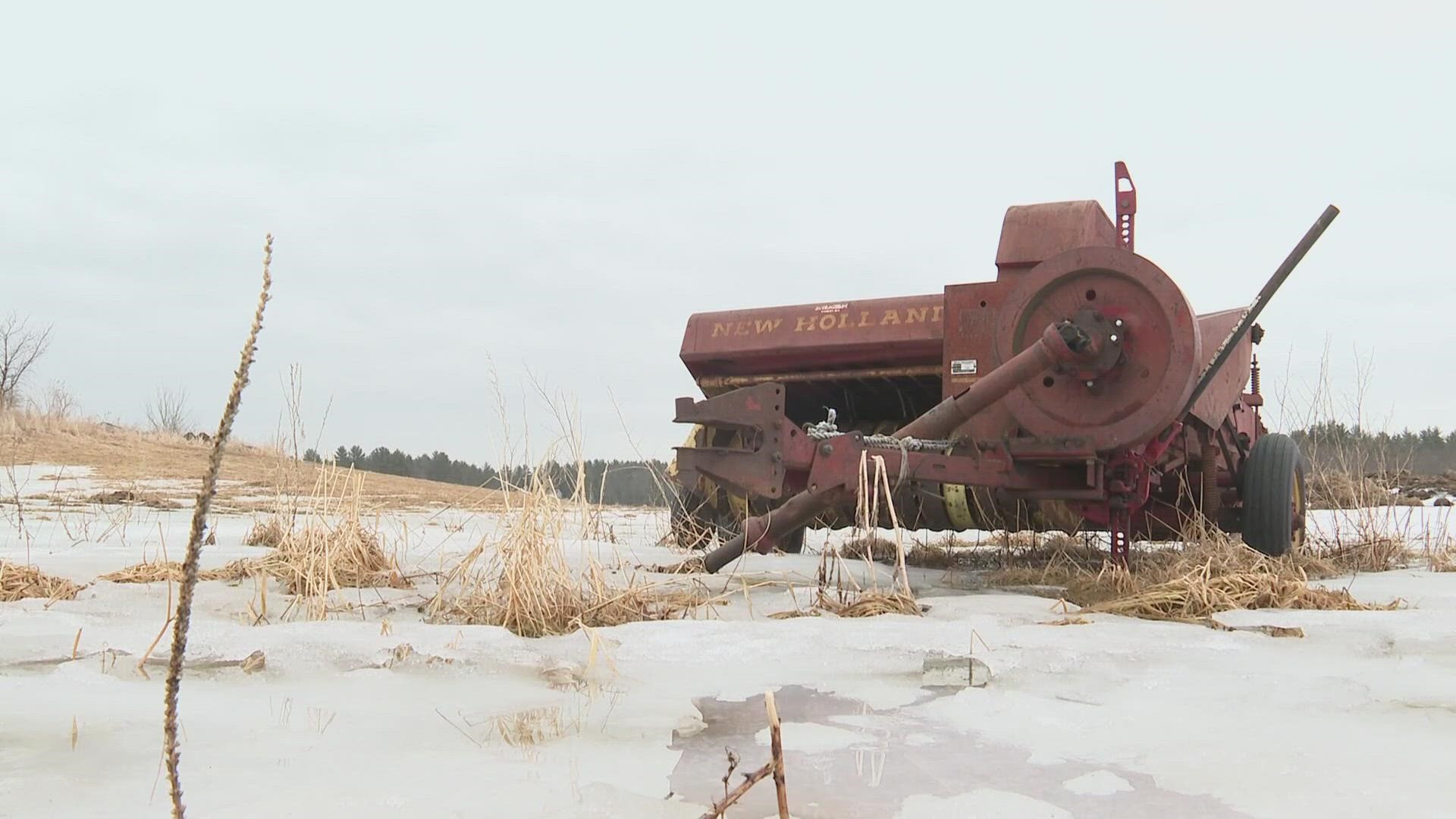MAINE, Maine — Maine lawmakers are considering a bill that some local farmers are calling a lifeline to help them financially in the aftermath of the widespread use of so-called "forever chemicals."
The chemicals, known as PFAS, have been found in wastewater sludge that years ago was trucked to farms across Maine and spread as fertilizer for decades. LD 289 would set up a state buyout program tapping into a multimillion-dollar fund, but some state officials have said that setting up the fund needs to play out first.
Fred Stone, the Arundel dairy farmer who first went public about PFAS chemicals, desperately wants to rebuild his century-old farm.
His family's legacy took a hit after high levels of PFAS chemicals were discovered in his cow's milk, soil, feed, and drinking water. After the majority of his cows were destroyed, he said it's hard to see any way out.
"I still have all that land out there that is valueless. You can't do anything with it," Stone said.
Stone also lost hundreds of thousands of dollars on remediating his farm, testing, and water filtration systems.
Stone testified before the legislature's Agriculture, Conservation, and Forestry Committee in favor of the bill that would mandate a state buyout of contaminated farmland. The land must be assessed at fair market value but not less than $20,000 per acre.
Rep. Wayne Parry, R-Arundel, is sponsoring the bill.
"It's totally up to the farmer if they take this. I looked at this as a lifeline," Parry said.
Regulators estimate 60 farms have been impacted by the spreading of PFAS-laced sludge, a state-approved practice dating back several decades.
A committee, ranging from farmers to researchers, is currently overseeing a $60 million PFAS fund that would provide financial relief, health monitoring, and testing. Members are working on setting up buyout programs and assessing land values, among other issues.
"Should a covenant restricting future uses be placed on the land? How will the state manage and hold the land?" PFAS fund director Beth Valentine testified.
Valentine and Sen. Stacy Brenner, D-Scarborough, co-chair of the advisory committee of the PFAS fund, are opposed to the bill but not opposed to the intent of trying to help farmers impacted by the toxic chemicals.
"I would ask that the committee allow this to unfold, so we may perform the duties we have been charged with," Brenner said.
The committee is expected to release its report in March, with the possibility of funds being dispersed sometime this summer.
For more information on the state's ongoing investigation into PFAS contamination go here.

